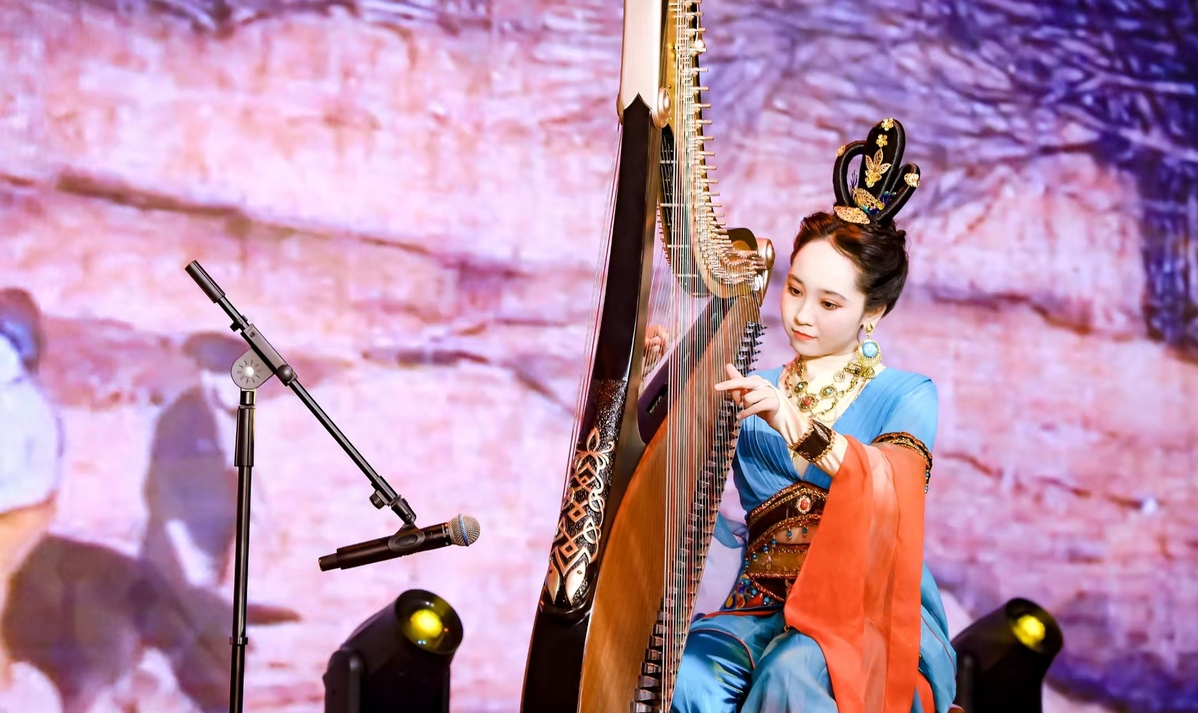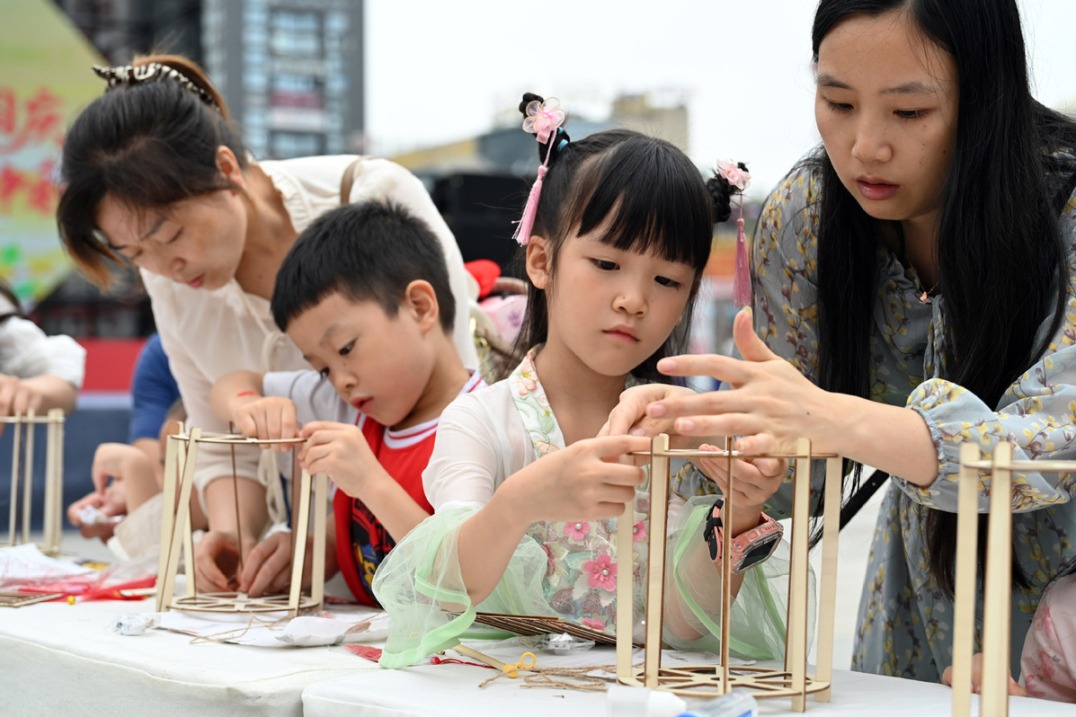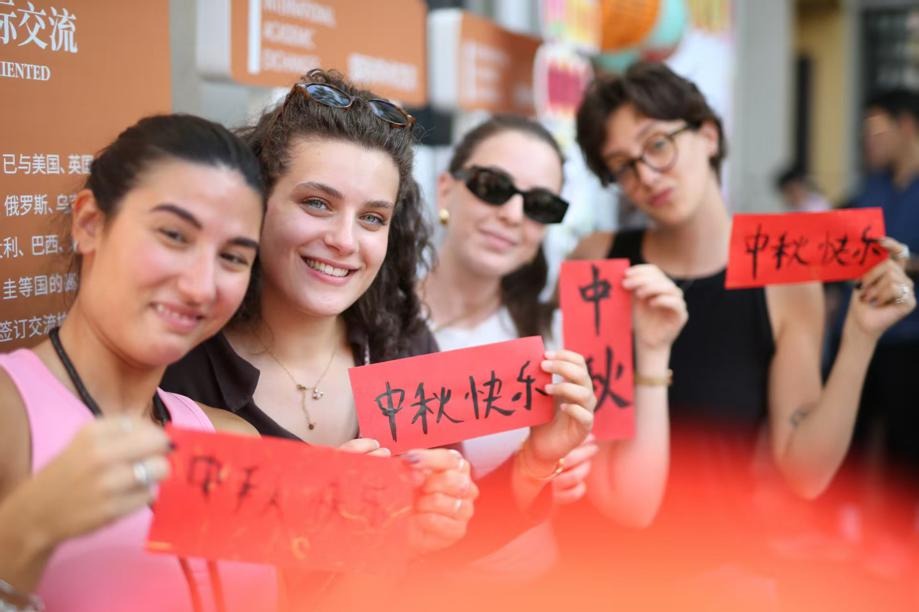Love of konghou leads to conservatory enrollment


URUMQI — This summer, 18-year-old Uygur girl Aydina Yasen was overjoyed to receive her admission letter to the konghou program at a conservatory in Northeast China, offering her the chance to further study the ancient Chinese musical instrument she has loved since childhood.
The konghou, also known as the Chinese harp, is believed to have been introduced to the Chinese hinterland through what is now the Xinjiang Uygur autonomous region during the prime usage period of the ancient Silk Road. This instrument flourished during the Tang Dynasty (618-907), frequently appearing in poetry, murals and imperial court performances.
Aydina Yasen grew up in Qiemo county, located deep in the Taklimakan Desert, the largest in China. Known as the "hometown of konghou", the county was once a key stop along the southern route of the ancient Silk Road and has unearthed the oldest known relics of the instrument — dating back 2,700 years.
Aydina Yasen began learning to play the konghou at age 10.
"The first time I heard its sound, I was deeply captivated," she said. "Now, every time I play it, it feels like I am touching an ancient soul."
There was a time when the konghou had almost disappeared. However, efforts to replicate the instrument began in the 1930s, and it made a return to the stage by the 1980s, according to Liang Pu, a konghou instructor in Qiemo.
In 2016, Xinjiang's first public-interest konghou training base was established in Qiemo, drawing both music teachers and students. As of this year, more than 200 children, affectionately known as "konghou kids", have been trained in the county. In addition, all primary and secondary schools in Qiemo now boast clubs where students can learn to play the instrument.
Since 2019, five konghou-themed competitions have been held in Qiemo, while a series of concerts featuring the harp have also been staged to enhance its popularity.
Among the many attracted to this instrument in Qiemo, Aydina Yasen is the only one to gain admission to a college-level program in recent years, securing a spot at the Shenyang Conservatory of Music in Liaoning province.
"There are only a handful of conservatories offering konghou as a major, and each admits very few students annually," Liang said. "Pursuing this path requires immense dedication."
Aydina Yasen's mother, a music teacher, has strongly supported her daughter's dreams.
"I hope my daughter can pass on traditional konghou techniques and share its culture with the world," she said.
Aydina Yasen said, "Learning konghou was never easy, but it took me from the desert to big cities and opened up a much bigger world." She added that she hopes to share the rich konghou culture of her hometown with wider audiences.
Xinhua
- Shanghai's Huaxin town showcases rural revitalization efforts
- Taiwan residents flock to mainland during holiday season
- National Day holiday box office exceeds 1.6b yuan
- China rushes farm machinery to key grain belt as rain threatens harvest
- Xinjiang scenic area suspends hiking after heavy snowstorm
- Typhoon Matmo weakens after hitting South China's Guangxi, relief efforts underway





































